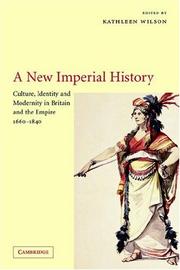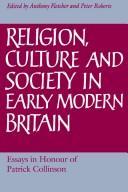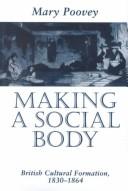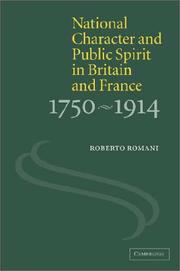| Listing 1 - 10 of 59 | << page >> |
Sort by
|
Book
ISBN: 9783030828554 Year: 2022 Publisher: Cham Springer International Publishing :Imprint: Palgrave Macmillan
Abstract | Keywords | Export | Availability | Bookmark
 Loading...
Loading...Choose an application
- Reference Manager
- EndNote
- RefWorks (Direct export to RefWorks)
National characteristics, British. --- Great Britain --- Civilization --- British national characteristics

ISBN: 0521007968 Year: 2004 Publisher: Cambridge Cambridge University Press
Abstract | Keywords | Export | Availability | Bookmark
 Loading...
Loading...Choose an application
- Reference Manager
- EndNote
- RefWorks (Direct export to RefWorks)
Imperialism --- National characteristics, British --- British national characteristics --- History --- Great Britain --- Civilization. --- Colonies

ISBN: 0511254482 0511585705 0521418216 0521028043 Year: 1994 Publisher: Cambridge : Cambridge University Press,
Abstract | Keywords | Export | Availability | Bookmark
 Loading...
Loading...Choose an application
- Reference Manager
- EndNote
- RefWorks (Direct export to RefWorks)
In this volume seventeen distinguished historians of early modern Britain pay tribute to an outstanding scholar and teacher. Several present reviews of major areas of debate: of the significance of the regulations which determined the social and legal status of professional actors in Elizabethan England, of Protestant ideas about marriage, of the political significance of the Anglo-Scottish Union, of relations between the Churches of England, Scotland and Ireland under the early Stuarts, and of the riddle of the inner dynamic of the experience of emigration of New England. There are case studies which include the relationship between ideas of cleanliness and godliness, and the flowering of the notion of unitive Protestantism in two declarations at a moment of political crisis in the north of England. This very wide-ranging and fascinating collection of essays will appeal both to specialists in the period and to those interested in the social and cultural history of early modern Britain.
National characteristics, British --- British national characteristics --- History. --- Great Britain --- Civilization --- Arts and Humanities --- History
Book
ISBN: 0521302145 Year: 1987 Publisher: Cambridge Cambridge University press
Abstract | Keywords | Export | Availability | Bookmark
 Loading...
Loading...Choose an application
- Reference Manager
- EndNote
- RefWorks (Direct export to RefWorks)
National characteristics, British --- -Groot-Brittannie --- British national characteristics --- Dictionaries --- Great Britain --- Civilization --- -Dictionaries. --- Social life and customs --- Dictionaries. --- Groot-Brittannie
Book
ISBN: 100930870X 1316536327 1009308696 1107145996 9781107145993 Year: 2023 Publisher: Cambridge Cambridge University Press
Abstract | Keywords | Export | Availability | Bookmark
 Loading...
Loading...Choose an application
- Reference Manager
- EndNote
- RefWorks (Direct export to RefWorks)
A panoramic history of the end of Britain as a global civic idea from the Second World War to the present day. Stuart Ward uncovers the ways in which Britishness has been imagined, experienced and ultimately discarded as the British empire unravelled and the 'four nations' of the United Kingdom drew steadily apart.
Book
ISBN: 9781444339260 1444339265 1118993128 1119092264 111899311X 1118993101 9780300186819 0300186819 9781118993101 9780300180060 0300180063 Year: 2016 Volume: *59 Publisher: New Haven
Abstract | Keywords | Export | Availability | Bookmark
 Loading...
Loading...Choose an application
- Reference Manager
- EndNote
- RefWorks (Direct export to RefWorks)
In this work, historian Stephanie Barczewski argues that Britain's embrace of heroic failure initially helped to gloss over the moral ambiguities of imperial expansion. Later, it became a strategy for coming to terms with diminishment and loss. Filled with compelling, moving, and often humourous stories from history, Barczewski's survey offers a fresh way of thinking about the continuing legacy of empire in British culture today.
Italy --- Rome --- History. --- Civilization. --- Civilization --- National characteristics, British. --- Failure (Psychology) --- Heroes --- Heroism --- Persons --- Antiheroes --- Apotheosis --- Courage --- Losing (Psychology) --- Psychology --- Fear of failure --- Success --- British national characteristics --- Great Britain

ISBN: 0226675246 0226675238 Year: 1995 Publisher: Chicago University of Chicago press
Abstract | Keywords | Export | Availability | Bookmark
 Loading...
Loading...Choose an application
- Reference Manager
- EndNote
- RefWorks (Direct export to RefWorks)
Arts, British --- National characteristics, British --- History --- British national characteristics --- British arts --- Caribbean Artists Movement (Group of artists) --- Great Britain --- Civilization --- Social conditions

ISBN: 023113455X 0231134541 Year: 2004 Publisher: New York, N.Y. Columbia University Press
Abstract | Keywords | Export | Availability | Bookmark
 Loading...
Loading...Choose an application
- Reference Manager
- EndNote
- RefWorks (Direct export to RefWorks)

ISBN: 9780691128658 0691128650 0691151164 9786612157660 1282157663 1400827973 9781400827978 9781282157668 Year: 2009 Publisher: Princeton, NJ
Abstract | Keywords | Export | Availability | Bookmark
 Loading...
Loading...Choose an application
- Reference Manager
- EndNote
- RefWorks (Direct export to RefWorks)
During the tumultuous closing decades of the nineteenth century, as the prospect of democracy loomed and as intensified global economic and strategic competition reshaped the political imagination, British thinkers grappled with the question of how best to organize the empire. Many found an answer to the anxieties of the age in the idea of Greater Britain, a union of the United Kingdom and its settler colonies in Australia, Canada, New Zealand, and southern Africa. In The Idea of Greater Britain, Duncan Bell analyzes this fertile yet neglected debate, examining how a wide range of thinkers conceived of this vast "Anglo-Saxon" political community. Their proposals ranged from the fantastically ambitious--creating a globe-spanning nation-state--to the practical and mundane--reinforcing existing ties between the colonies and Britain. But all of these ideas were motivated by the disquiet generated by democracy, by challenges to British global supremacy, and by new possibilities for global cooperation and communication that anticipated today's globalization debates. Exploring attitudes toward the state, race, space, nationality, and empire, as well as highlighting the vital theoretical functions played by visions of Greece, Rome, and the United States, Bell illuminates important aspects of late-Victorian political thought and intellectual life.
Imperialism --- National characteristics, British. --- Impérialisme --- Caractéristiques nationales britanniques --- History --- Histoire --- Great Britain --- Grande-Bretagne --- Colonies --- Civilization --- Civilisation --- British national characteristics

ISBN: 1107125030 1280419458 0511175450 0511155816 0511328907 0511490712 0511044941 051101371X 9780511013713 9780511155819 9780521810005 0521810000 9780511490712 9780511044946 9781107125032 9781280419454 9780511175459 9780511328909 9780521024266 0521024269 Year: 2002 Publisher: Cambridge Cambridge University Press
Abstract | Keywords | Export | Availability | Bookmark
 Loading...
Loading...Choose an application
- Reference Manager
- EndNote
- RefWorks (Direct export to RefWorks)
In a work of unusual ambition and rigorous comparison, Roberto Romani considers the concept of 'national character' in the intellectual histories of Britain and France. Perceptions of collective mentalities influenced a variety of political and economic debates, ranging from anti-absolutist polemic in eighteenth-century France to appraisals of socialism in Edwardian Britain. Romani argues that the eighteenth-century notion of 'national character', with its stress on climate and government, evolved into a concern with the virtues of 'public spirit' irrespective of national traits, in parallel with the establishment of representative institutions on the Continent. His discussion of contemporary thinkers includes Montesquieu, Voltaire, Hume, Millar, Burke, Constant, de Staël and Tocqueville. After the mid-nineteenth century, the advent of social scientific approaches, including those of Spencer, Hobson and Durkheim, shifted the focus from the qualities required by political liberty to those needed to operate complex social systems, and to bear its psychological pressures.
National characteristics, British --- National characteristics, French --- Public interest --- State, The --- Common good --- French national characteristics --- British national characteristics --- History. --- Great Britain --- France --- Intellectual life. --- Arts and Humanities --- History
| Listing 1 - 10 of 59 | << page >> |
Sort by
|

 Search
Search Feedback
Feedback About UniCat
About UniCat  Help
Help News
News